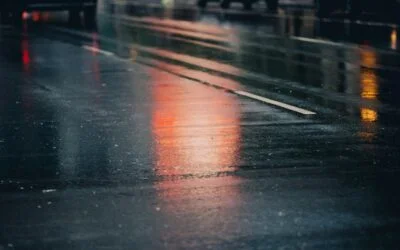September brings cooler evenings, earlier sunsets, and more wildlife movement across Georgia. As deer become more active at dawn and dusk and school-year traffic ramps up, crash risk rises on suburban arterials and rural highways alike. If a deer strike or a swerve-to-avoid collision injures you or your passenger this month, knowing how Georgia fault rules and insurance coverage work can protect your health and your claim.
Deer collisions spike in early fall because animals travel more at low light, vegetation near roads hides movement, and glare from sunset reduces reaction time. Many drivers instinctively swerve instead of braking in a straight line, which can send a car into oncoming traffic, a guardrail, or a roadside ditch. Even at “lower” speeds, these impacts cause serious injuries—concussions, whiplash, fractures, and shoulder and knee trauma from bracing—along with airbag burns and significant vehicle damage.
Georgia is a fault state, but wildlife doesn’t carry insurance. After a deer strike alone, your recovery often depends on your own policies: comprehensive coverage typically pays for animal impact damage, and medical payments (MedPay) can help with ER bills regardless of fault. When a driver swerves and hits another vehicle, traditional liability rules apply, and insurers will examine speed, following distance, reaction time, and roadway evidence to decide fault. Uninsured/underinsured motorist (UM/UIM) coverage can be crucial in chain-reaction crashes where at-fault coverage is limited or disputed.
If a crash happens at dawn or dusk, safety and documentation come first. The evidence at a wildlife scene changes quickly—animals move, debris is cleared, and lighting conditions won’t be the same an hour later—so capture what you can while it’s fresh.
What to do after a deer or dusk-related crash
- Call 911 and get medical care. Concussion and soft-tissue symptoms often appear hours later; an EMT evaluation and prompt follow-up create a clear medical record.
- Stay visible and document the scene. Move to a safe location, use hazard lights, and photograph vehicle positions, skid paths, glass and debris, fur or animal remains, lighting conditions, and any nearby vegetation that blocked sightlines.
- Collect information. Exchange insurance details with any involved drivers and get witness contacts; note the exact time and direction of travel.
- Preserve electronic evidence. Save dash-cam files and ask nearby homes or businesses about exterior cameras; your vehicle may store crash data (speed, braking) that supports your claim.
- Notify your insurer—carefully. Report the crash promptly but avoid recorded statements about speed or lane position until you’ve spoken with an attorney.
- Follow treatment plans. Consistent medical care is essential for a Georgia personal injury claim.
Common damages after deer and dusk crashes include ER visits, imaging, physical therapy, injections or surgery, time away from work or school, and costs to replace car seats, glasses, laptops, and phones damaged in the wreck. If another driver’s reckless conduct—speeding through limited visibility, tailgating at dusk, or texting—contributed to the collision, you may also pursue punitive damages to deter similar behavior.
Liability questions can be nuanced. A straight-on deer strike with no other vehicles typically points to comprehensive coverage, not a liability claim. But if a driver swerves across lanes and causes a secondary impact, their insurer may be responsible for your injuries and losses. When multiple vehicles are involved, identifying all available policies—primary liability, UM/UIM, MedPay, and, where applicable, umbrella coverage—can significantly increase total recovery.
Gunn Law Group moves quickly in September cases to secure scene photographs, dash-cam and CCTV footage, weather and sunset data, and event data recorder downloads before they’re lost. We coordinate with your medical providers to document injuries, calculate present and future losses, and negotiate with every responsible insurer—your own and the at-fault driver’s—to pursue the maximum compensation Georgia law allows.
If an early fall wildlife or dusk crash derailed your plans, don’t let an insurer dismiss it as “just an accident.” Call the Big Gunn at 888-BIG-GUNN for a free case review with an Atlanta car accident lawyer who knows how to win these complex claims.




